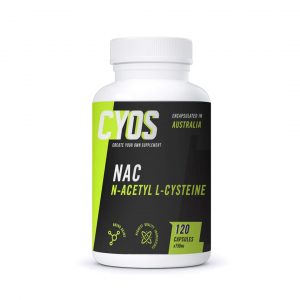


News
J J 27 Aug 2020
Vitamin A
Share
Vitamin A is a fat soluble vitamin, which means it is absorbed along with fats in the body and can be stored in the body’s liver and fatty tissue. Other types of fat soluble vitamins include Vitamin D, E and K. Your body doesn’t need fat soluble vitamins every day so they can be stored and used when you need them [9].
Vitamin A helps keep your heart, lungs and kidneys working effectively. It also helps with vision, immune and reproductive systems and helps with bone and tooth development. Most humans can get adequate amounts of Vitamin A through their diets by eating a variety of foods. There are two types of Vitamin A, ‘fully formed’ Vitamin A, which is found in meat, poultry, eggs and dairy products and the second type known as precursor or provitamin A which is found in fruit, vegetables and other plant-based products. Beta-carotene is the most common type of precursor of vitamin A which is found in foods such as dark leafy greens, sweet potato, carrots, broccoli and apricots. [10]
Would a Vitamin A supplement be beneficial for you?
Most people can get sufficient amounts of Vitamin A in their diets but some people are deficient in Vitamin A and therefore need to supplement. Over supplementation can cause toxicity in the body so it is important to be aware of the recommended daily intake.
Some reasons people choose to supplement with Vitamin A include:
- Topical and Oral retinoids can help with acne, wrinkles and other skin conditions
- Vitamin A can be used for treatment of dry eye
- Treatment of measles
- Macular degeneration (vision loss)
Some people are at risk of being Vitamin A deficient, this could happen if you:
- Drink a lot of alcohol
- Have anorexia nervosa
- Have Liver disease
- Have Cystic fibrosis
- Have Celiac disease
- Have had gastrointestinal surgery
Topical Vitamin A for acne and wrinkles
Vitamin A is added to many beauty and anti-aging products for its benefits in helping with certain skin conditions like acne, fine lines and wrinkles, clogged pores and fading age spots. Vitamin A retinoids have anti-inflammatory properties which can be beneficial for skin conditions. [1]
Vitamin A for the treatment of dry eye
A study was conducted on 80 patients aged from 19 – 65 years old who were divided randomly in two groups. Group A received eye drops containing lubricant and topical vitamin A, this eye drop was given to patients as one drop in each eye every 4 hours during the waking hours for 6 months. Group B received topical lubricant eye drops used as one drop in each eye every 4 hours during the waking hours and oral vitamin A in the form of a capsule given once daily for 6 months. The study found that the oral Vitamin A antioxidant was much more effective and has a lasting effect much longer than the topical one. It is now recommended to consider oral vitamin A to relieve symptoms of dry eye syndrome. [5]
Treatment of measles
A vitamin A deficiency in children can lead to a greater risk of illness and death due to respiratory tract infections [2] Supplementation with Vitamin A has shown to reduce the risk of death in children aged 6-59 months old by 23-30% [3]. Vitamin A supplementation has been shown to potentially speed recovery, reduce the severity and prevent subsequent episodes of acute lower respiratory tract infections [4].
Vitamin A for Macular degeneration
Vitamin A plays an integral role in the human retinal pigment epithelial cells [6]. A systematic review and meta-analysis of supplementing Vitamin A, Vitamin C and Vitamin E combined had positive outcomes and a larger effect on the reduction of age related macular degeneration than the individual vitamin [6]. Vitamin A can be helpful for AMD if it is paired with other vitamins like Vitamin C and Vitamin E.
Summary
It is important to remember that Vitamin A is fat soluble which means the body will store excess amounts primarily in the liver. Over supplementation can cause toxicity in the body so it is important to be aware of the recommended daily intake.
References
[1] https://www.ncbi.nlm.nih.gov/pmc/articles/PMC5574737/
[2] Ross A. In: Sommer A, West K, eds. Vitamin A deficiency: health, survival and vision. New York, Oxford University Press. 1996; 251–273
[3] Glasziou PP, Mackerras DE. Vitamin A supplementation in infectious diseases: a meta-analysis. BMJ, 1993, 306:366–370.
[4] Fawzi W, Mbise RL, Fataki MR, Herrera MG, Kawau F, Hertzmark E, et al. Vitamin A supplementation and severity of pneumonia in children admitted to the hospital in Dar es Salaam, Tanzania. American Journal of Clinical Nutrition. 1998; 68:187–192.
[5] – http://www.ghrnet.org/index.php/IJOR/article/view/2140/2510
[7] https://www.nrv.gov.au/nutrients/vitamin-a
[8] https://www.who.int/elena/titles/bbc/vitamina_pneumonia_children/en/
[9] https://www.healthdirect.gov.au/vitamin-a
[10] https://ods.od.nih.gov/factsheets/VitaminA-HealthProfessional/
CYOS blog content is for informational and educational purposes only, and should not be considered medical advice, diagnosis or treatment recommendations. Always consult with your doctor or medical professional before using any dietary supplements or if you suspect you have any medical concerns or issues.
Share
SHOP OUR PRE-MADE CAPSULES RANGE
100% Pure • Encapsulated in Australia • Vegetarian Capsules • No Fillers • No Additives • No Binders • No Anti Caking Agents • Allergen Free • No Preservatives • Non GMO
Our best sellers
 Search Products
Search Products
 All Products A-Z
All Products A-Z
 Pre-Made Capsules
Pre-Made Capsules
 Additives
Additives
 Amino Acids
Amino Acids
 Anti-Oxidants
Anti-Oxidants
 Beauty
Beauty
 Bioactive Compounds
Bioactive Compounds
 Bulk Items
Bulk Items
 Empty Capsules
Empty Capsules
 Fats & Oils
Fats & Oils
 Fibers
Fibers
 Herbal Extracts
Herbal Extracts
 Joints
Joints








 Mushroom Extracts
Mushroom Extracts Nootropics
Nootropics Packaging
Packaging Probiotics & Digestion
Probiotics & Digestion Proteins
Proteins Sleep
Sleep Stimulants
Stimulants Super Blends
Super Blends Super Foods
Super Foods Tools
Tools Vitamins & Minerals
Vitamins & Minerals Weight
Weight Workout
Workout